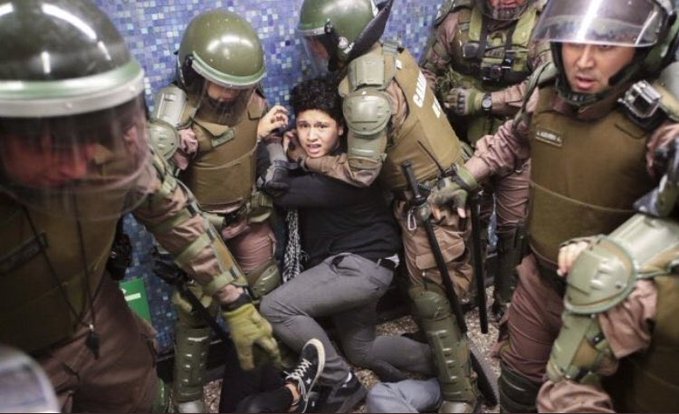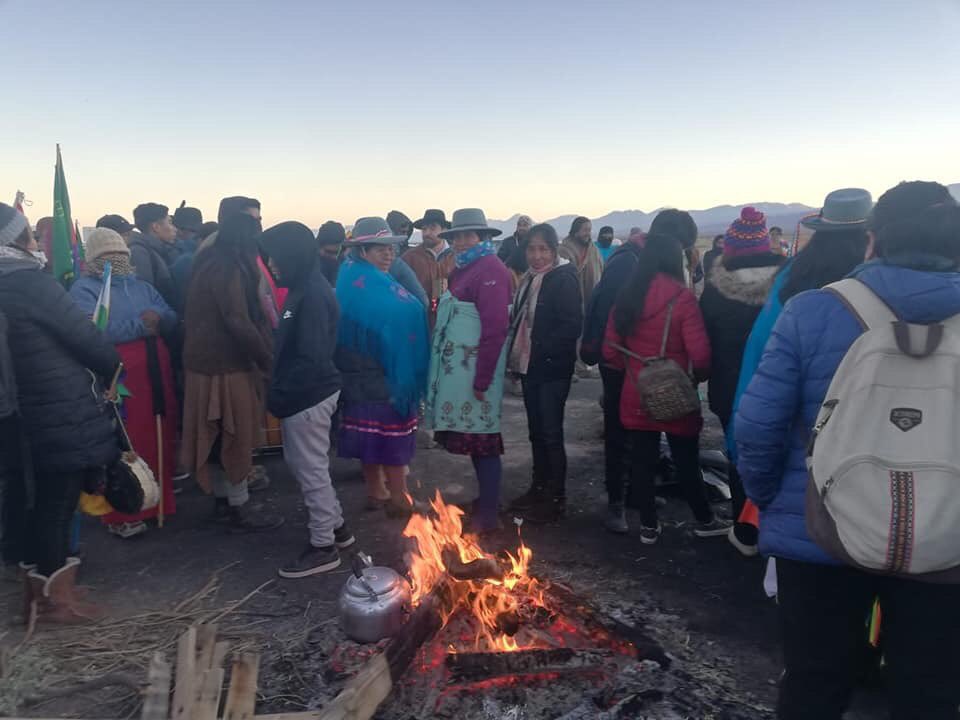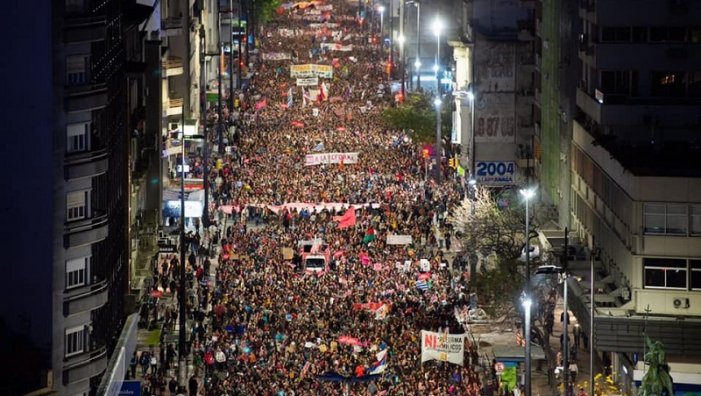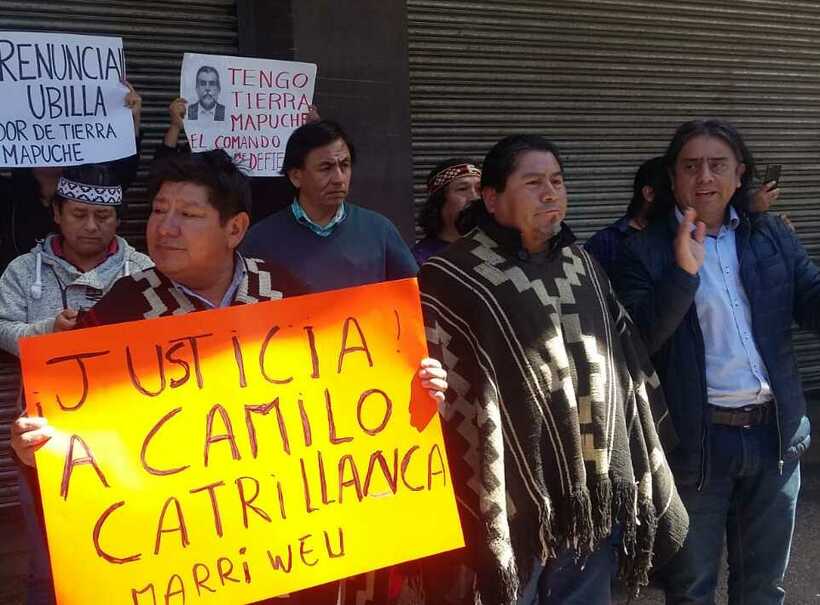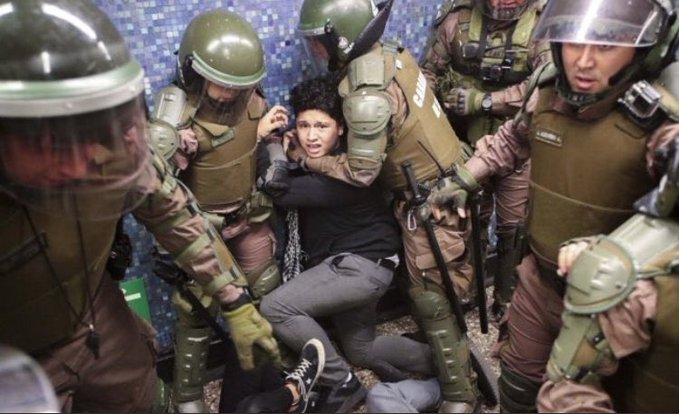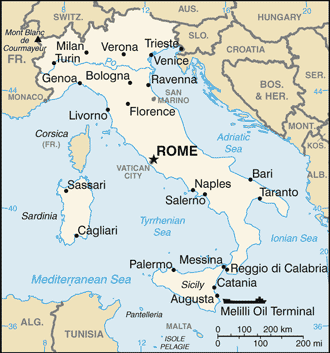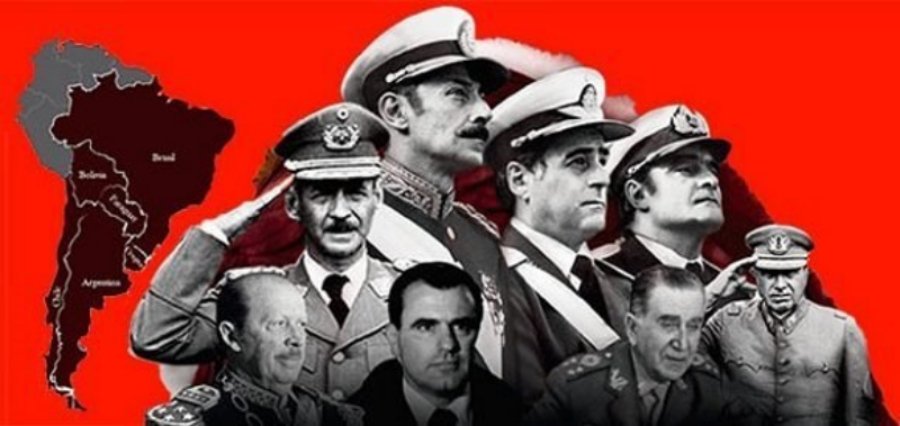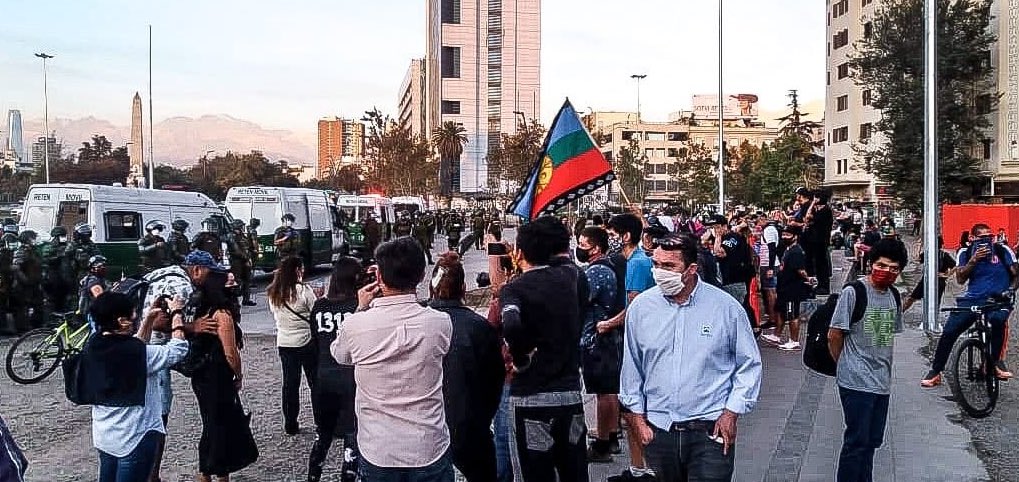
Chile: protest against ‘new normality’
For the first time since Chile was shut down by the COVID-19 pandemic, protesters gathered in Santiago’s Plaza Italia—which had been renamed “Plaza Dignidad” during last year’s popular uprising. Demonstrators were opposing President Sebastián Piñera’s call for the country to return to work under a “new normality,” in spite of the COVID-19 threat. The protesters wore masks, but were nonetheless quickly dispersed by the Carabineros, with 14 arrested. Gatherings of more than 50 continue to be banned nationwide. (Photo via Twitter)





